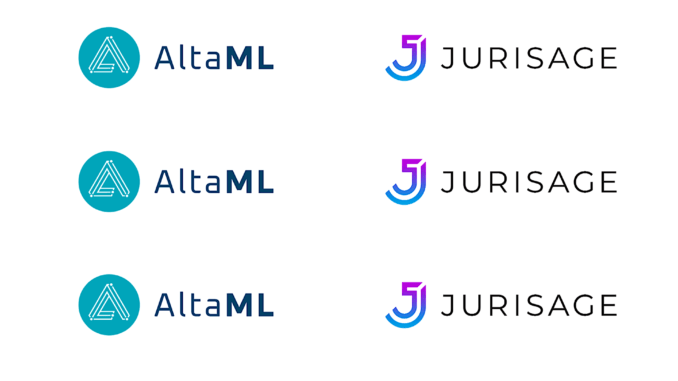
Compass Law, a Canadian legal publisher, and AltaML, a machine learning product development group, have formed a joint venture to launch Jurisage, a new business that will develop AI tools for the legal sector. Or in short: AltaML supplies the AI expertise and Compass supplies the legal data and its market knowledge.
Its first product is MyJr, a legal research citation tool, which they describe as ‘like having your own junior legal assistant handing you important notes about cited cases precisely when you need them’.
Jurisage also intends to develop APIs to support connection and integration of its AI models with service providers and enterprise users.
MyJr (or My Junior) is an ‘intelligent tool that saves time and effort in legal knowledge gathering. MyJr automatically identifies case citations appearing on any website, in Word and even in PDF, and delivers an overlay view of the insights and details legal professionals rely on to validate the importance of the cited case to their immediate needs – all without requiring the reader to leave their page or switch away from their preferred legal research tool’.

The basic plan is that the tool will search and grab data about a cited case, and with AltaML’s help it can ‘break all sentences down to facts, law, conclusions’, and other key parts of a case.
It can search through your firm’s brief banks, work product and internal research documents. But, it can also work in tandem with whatever legal research software you are already using.
Or, as the company put it: ‘MyJr represents an evolution and extension of the work AltaML completed in 2021 in building legal research assistant prototypes and case law NLP models that classify sentences as pertaining to one or more of Facts, Issues, Law, Analysis or Conclusions (FILAC). MyJr will initially be offered in Canada and the United States and will rely on the Compass case law database as well as a collection of US case law acquired by Jurisage.’
Colin Lachance, CEO of Compass told Artificial Lawyer that the JV came out of a relationship that started when he created the Legal Innovation Data Institute (LIDI) in 2020.
LIDI’s goal was to share case law data and encourage the development of research tools based on that data. However, its impact has been limited, Lachance said, in part because some of the academic bodies that joined would have needed to put a lot technical resources into the project, such as in relation to assisted machine learning.
However, they also got to know AltaML, a business built with the core purpose of developing AI solutions in partnership with subject matter experts. So, it all worked out in the end.
More broadly the company will ‘prioritise workflows that deliver the best and highest value insights in response to the narrowest and simplest input’.
Cory Janssen, AltaML co-CEO, concluded in a statement: ‘We’ve been working closely with Compass Law for some time and could not be more thrilled about the launch of Jurisage AI. Data is a prerequisite for AI, and Compass Law showed tremendous foresight in acquiring legal datasets. With the parties’ deep, complementary expertise, Jurisage already has a first product in development addressing a major pain point in law practice. We’re very excited to see Jurisage well on its way to elevating the possible in the legal space.’
Is this a big deal? It shows that if you really want to get value from legal data mining then you need plenty of time and people with real expertise in machine learning and NLP to do so. Accurate legal research tools that are shaped via machine learning are hard work to build. Consider the effort that Thomson Reuters and LexisNexis have put into moving their tools up a notch to provide NLP-driven outputs. They have put years of work into this effort, and at a major scale.
So, it makes a lot of sense for a JV with AltaML, although this is on smaller level for now. That said, there is no reason why – and perhaps with some additional funding – that the project cannot grow and develop more tools in this area.